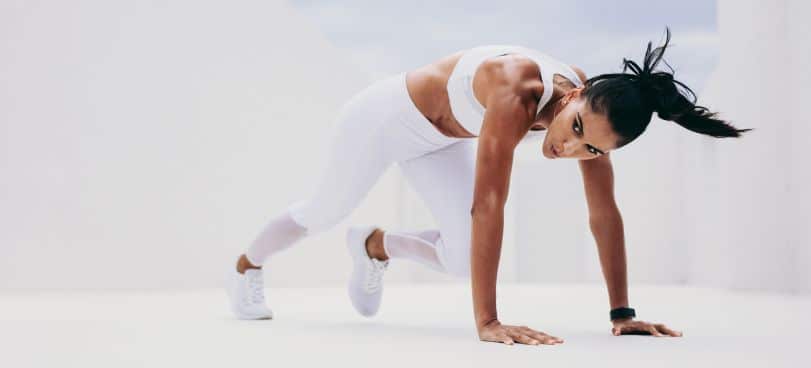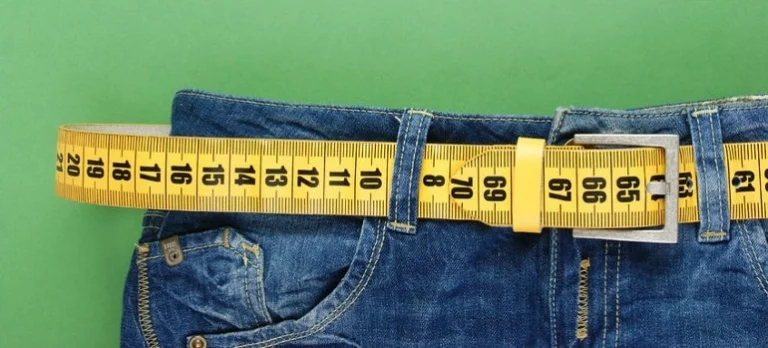Truth About Water Weight (And How to Drop It)
Water weight is something every woman (and many men) fears when they are on their journey of losing weight. It can feel like it ruins your progress, discouraging you from working through it and possibly even giving up.
If you have ever felt this way, then it is a good thing you are reading this because I understand, and I also know you shouldn’t give up.
I have been there, feeling smacked in the face by the number on the scale, but I have good news for you: It’s not the end of the world!
Why? Because it is very likely that it is simply water weight. But…
How Can You Tell?
You can tell if you have gained water weight if your hands, fingers, wrists, and ankles are puffy, or you can keep track of your body fat percentage with a monitor.
If the percentage stays the same, it would mean you haven’t gained fat but water (knowing this helps you decide whether to cut down on calories or reduce salt and increase water consumption).
How to Prevent It

There are many ways to control the issue of water weight gain, and doing so will make you an overall healthier person.
Reducing salt is the biggest cause, as it makes the body hold extra fluids in the cells.
Also, consume more plain water, at least 8 to 10 glasses daily. Ironically enough, drinking more plain water will reduce water weight by flushing sodium and fluids out of your system.
The more hydrated your body is, the better. However, keep in mind that you want to drink water slowly and continuously throughout the day, do not gulp or chug it.
If you find it difficult to cut salt out of your diet due to a lack of flavoring, try using natural spices, natural lemon, lime, orange juice, or vinegar.
Make it a habit to check the labels of the food you buy, and try and buy as few canned and packaged foods, as they will have high sodium levels.
Stick to fresh fruits and vegetables, lean proteins, like fresh salmon, chicken, nuts and low-fat yogurts, natural spices, and whole grains – That is always a safe bet for low-calorie intake and proper nutrition!
High potassium and fiber foods also help balance your fluids, so think bananas, avocados, apricots, and oatmeal. Exercising is also a miracle worker, as when you sweat, you release sodium from your body, reducing water retention.
Generally, sugar should be avoided either way unless it is from fresh fruits.
The processed sugar found in many foods is bad for you for many reasons, but in the case of water weight, it raises your insulin levels and slows down your body’s ability to release sodium, causing you to bulge.
Your monthly menstrual cycle (if you’re a woman) is something you simply cannot avoid, so to make the best of it, drink lots of water during that time, exercise regularly, and eat fruits and vegetables.
Regarding alcohol, it is obviously something we should ideally not consume, but if you do, keep it to low-calorie drinks like white wine or vodka soda and opt for no more than two or three small glasses.
Losing weight not only requires eating healthy and burning calories but a little bit of education as well.
The more you know, the more you can combat the incoming issues that could potentially hurt your progress. Lastly, a little bit of help with weight loss never hurts, so considering a supplement of some sort is often wise.
If you are looking for a simple and inexpensive solution that requires no prescription, you could consider the phentermine alternative officially recommended by Phentermine.com, PhenQ.
It is affordable while also effective in helping suppress appetite, cravings, and increasing energy.
Feel free to leave a comment below, and share this helpful article with your circle of friends, possibly helping them become more successful in their weight loss, too.
After all, any task is easier to tackle with the support of family and friends!
Did you like the article?
Subscribe to our weekly newsletter and get our best weight loss tips straight to your inbox!








